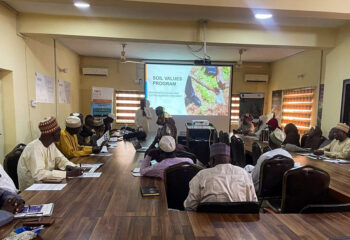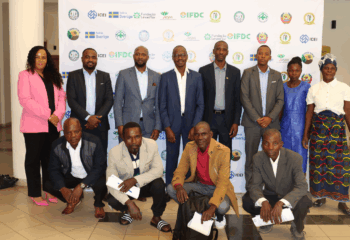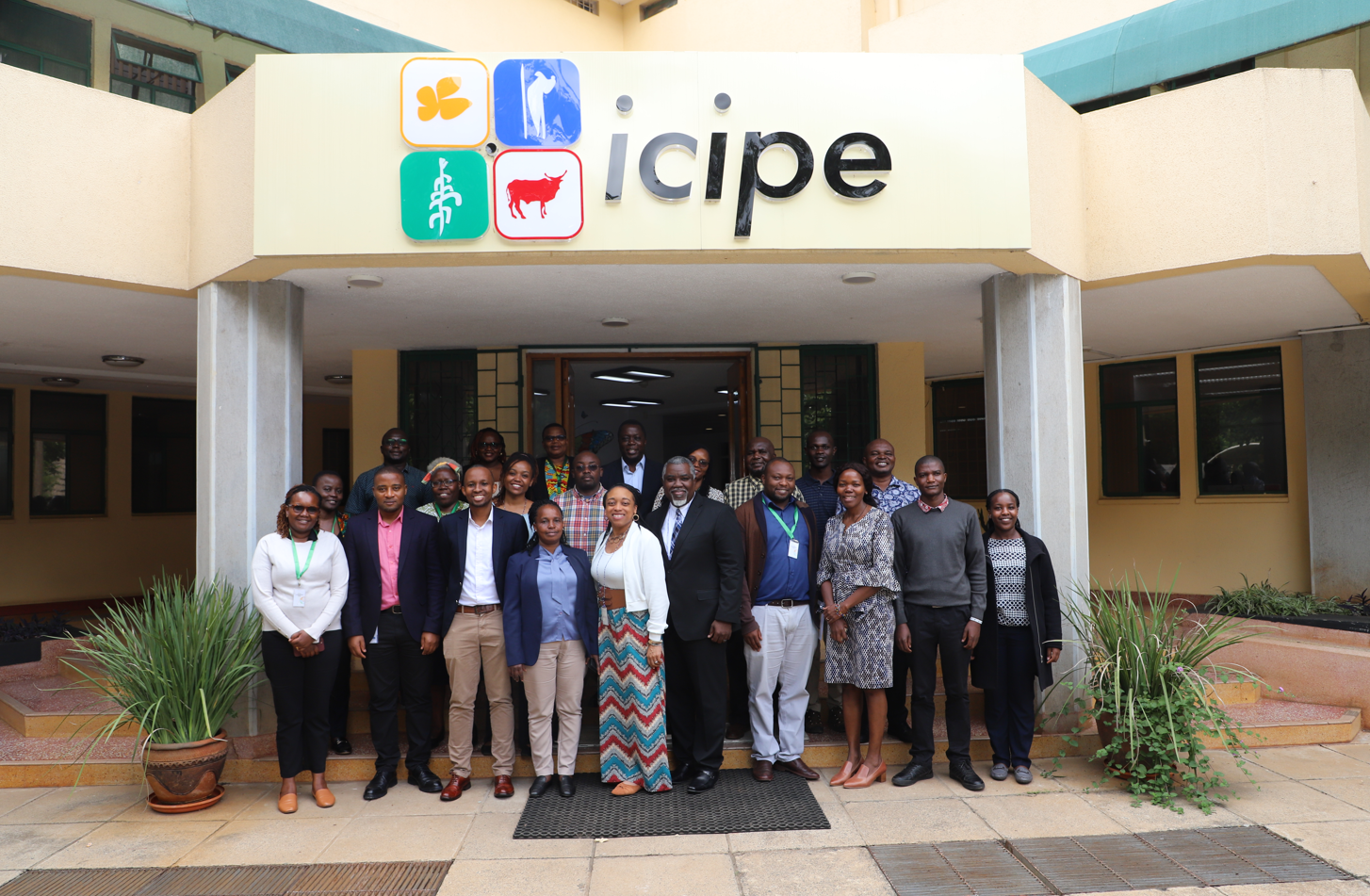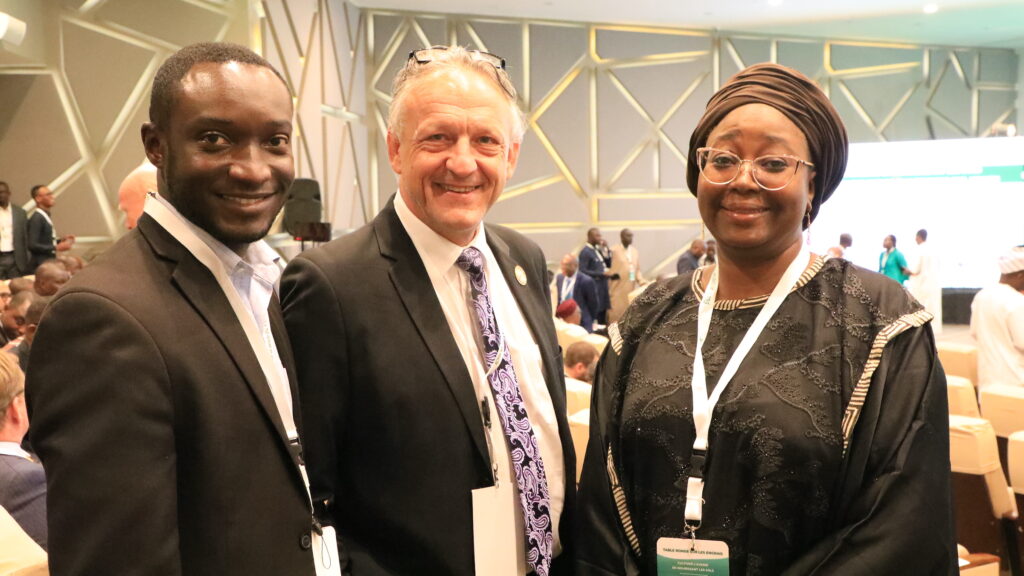
West Africa fertilizer policy decision-makers and experts issued an official Ministerial Declaration on Fertilizer and Soil Health in West Africa at the close of a high-level round table organized by the Economic Community of West African States (ECOWAS), with technical and funding support by IFDC’s Feed the Future EnGRAIS project, funded by the United States Agency for International Development (USAID), and the World Bank, respectively.
The declaration was based on a roadmap validated by West African Ministers of Agriculture and Finance, the private sector, civil society organizations, and fertilizer sector experts from 17 countries across the region. The session was hosted by the President of Togo, Faure Essouzimna Gnassingbe, together with the President of Niger, Mohammed Bazoum, and President Umaro Sissoco Embalo of Guinea Bissau.
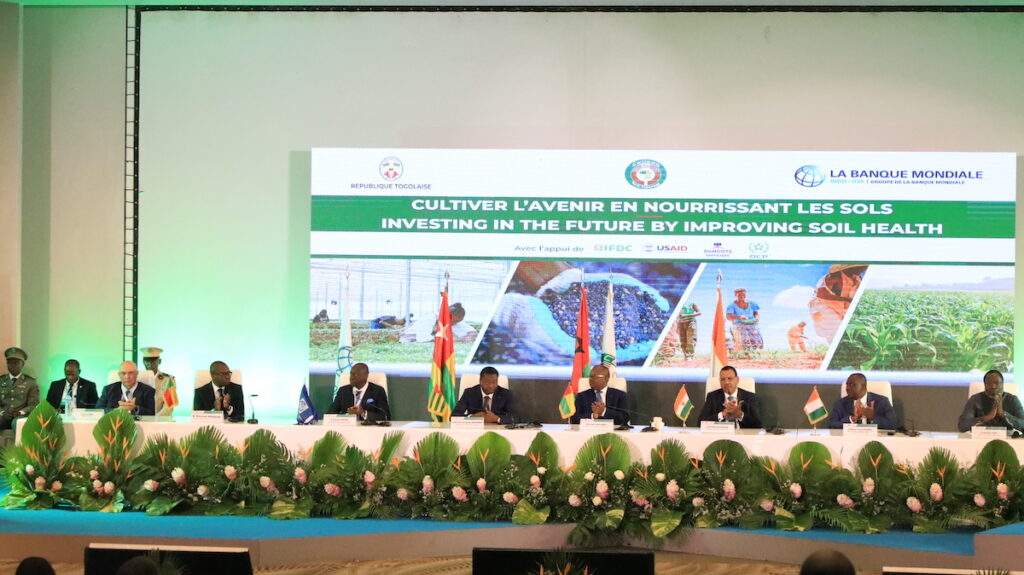
According to Dr. Omar Alieu Touray, President of the ECOWAS Commission, by validating the roadmap, on which the declaration was based, countries in the ECOWAS region and the Sahel have committed to providing smallholder farmers across the region with access to appropriate mineral and organic fertilizers to produce crops that promote food security.
The declaration made seven commitments, agreeing to:
- Triple domestic production and distribution of organic and mineral fertilizers;
- Make targeted agronomic recommendations for specific crops, soils, and climatic conditions available to at least 70 percent of smallholder farmers on the continent to ensure greater efficiency and sustainable use of fertilizers;
- Reverse land degradation and restore soil health on at least 30 percent of degraded land;
- Make the Africa Fertilizer Financing Mechanism fully operational to improve the production, procurement, and distribution of organic and mineral fertilizers and soil health interventions;
- Formulate and implement policies and regulations to create an enabling environment for fertilizer and soil health interventions;
- Develop and promote systemic strengthening of national capacities in fertilizer management, soil health management practices, and technologies adapted to the local context;
- Ensure that 70 percent of smallholder farmers have access to quality fertilizer and soil health extension and advisory services, from both public and private extension systems.
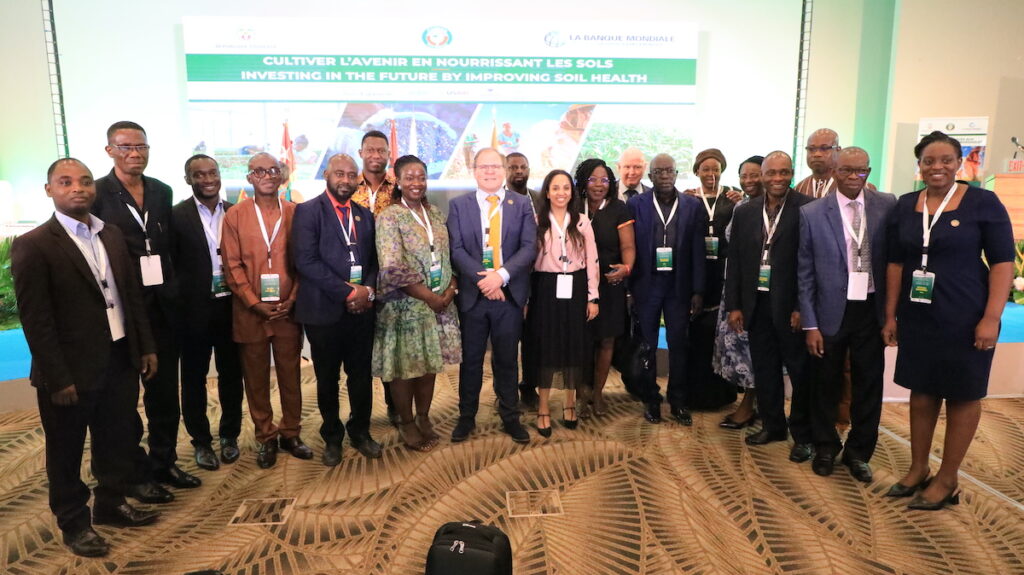
The declaration commits countries in West Africa and the Sahel to developing an agricultural sector that is resilient enough to increase production and productivity as well as promote food security. It requires Members States of ECOWAS and the Sahel to:
- Declare fertilizer, both mineral and organic, as a strategic product without borders, free to move without hindrance, in the ECOWAS region and the Sahel, in accordance with the regional regulatory arrangements in force or to be improved;
- Declare soil health as a critical pillar of food security and a sustainable agricultural model; therefore, programs for its preservation or restoration must be funded by development partners and state budgets;
- Support implementation of the road map and accelerate the creation of an enabling environment for effective access to fertilizers and other agricultural inputs by men and women farmers as well as implement strategies and plans for integrated soil fertility management and soil health.
Some specific actions of the declaration focus on Member States undertaking measures and committing themselves to progressively phasing out customs duties and taxes on fertilizers and other fertilizing raw materials; taking immediate decision to set up the West African Fertilizer Quality Control Committee, to assist regional economic communities in the implementation of Regulation C/REG.13/12/12 relating to fertilizer quality control; and boosting investments in transport, shipment, and storage infrastructure, as well as establishing financing and risk-sharing facilities for input manufacturers and distributors in the region.
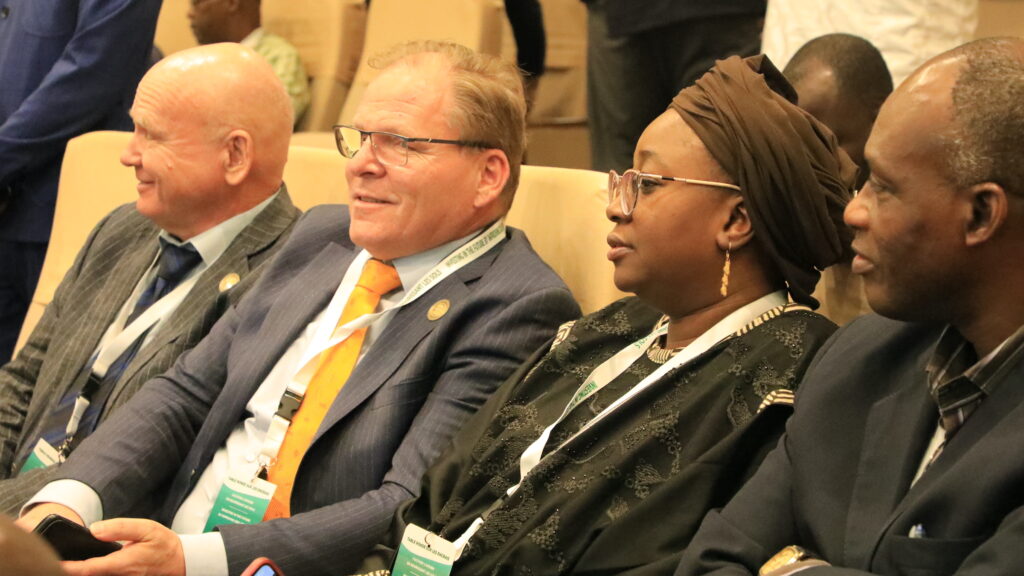
As part of its continuous support to the development of agriculture in West Africa, the World Bank Group, which funded the event, committed to invest an additional 1.5 billion dollars by 2024, an increase from 4 billion already committed and under implementation to 5.5 billion dollars, to improve soil health and strengthen the fertilizer sector, particularly in areas of fertilizer subsidy management, quality control, and green fertilizer production. An additional 100 million euros was pledged by the Netherlands to support the agriculture sector over the next 10 years. The Netherlands also pledged 100 million euros to support the agriculture sector in West Africa over the next 10 years.

